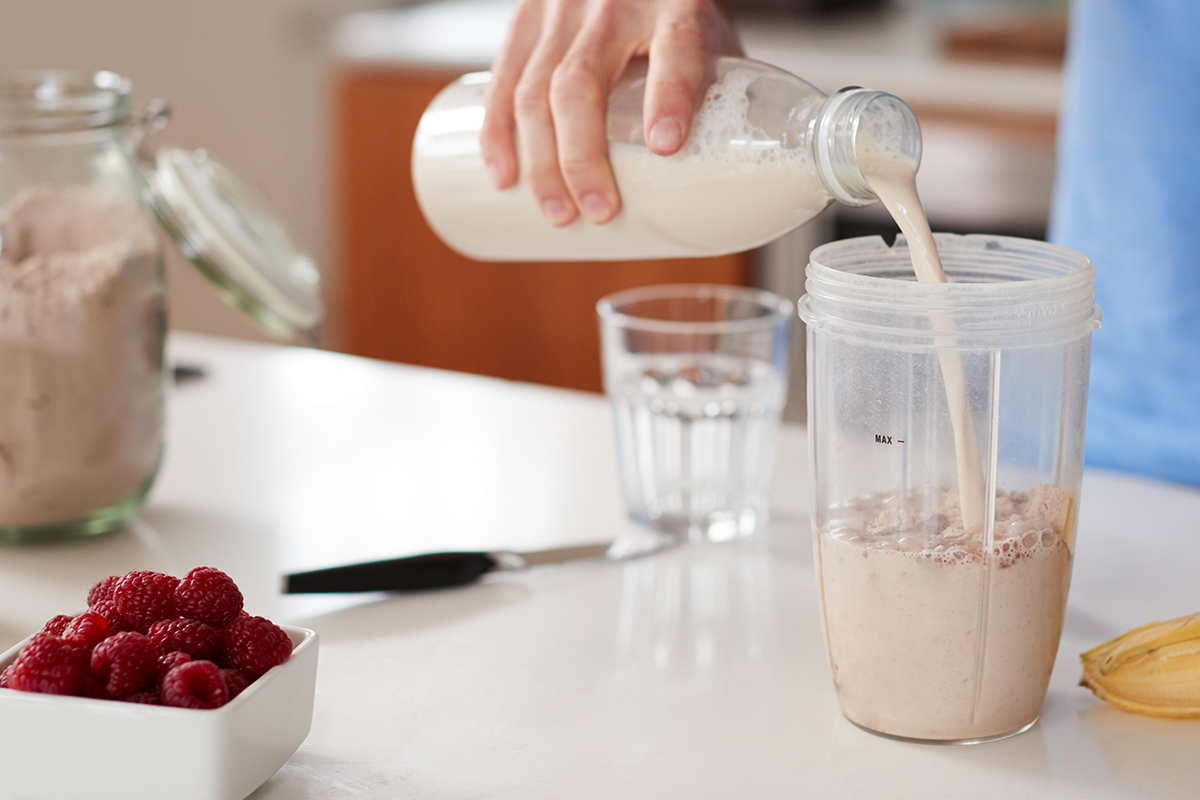
Question:
My focus has largely been on muscle growth, though I do plan on switching my routine a bit later in the summer to incorporate more cardio. I would like to be more mindful about the supplements I use and am hoping you can provide advice on this front. I shop at GNC and I normally get a powder for intra-workout drinks and I also get tubs of protein. Do you have products that you would recommend that are both effective and healthy? There are so many different products in the market, as you know, but there really isn’t much oversight of those products when it comes to quality, effectiveness, and, to some degree, legality. I think it would be good for me to hear from an expert on what intra-workout drinks and protein shakes are best rather than relying on blogs, etc.
– Deb S.

Answer:
You’re absolutely right that all consumers have to go on is mostly user reviews and manufacturer advertising – how frustrating! With thousands of products on the market for an industry that draws billions of dollars in sales each year, it’s impossible to even keep up a list of what sport nutrition supplements are available. Turning to the experts is excellent. To be completely unbiased, I don’t endorse a particular brand or products. Rather I look at the individual ingredients for their safety and efficacy.
Protein powders that only contain other macronutrients, amino acids and flavors tend to be safe and effective as solid proteins. They really are a substitute for whole food for convenience, portability and ease of digestion. A reasonable guide is to spend no more than one dollar ($1) per 20-25 gram protein serving; even less if you buy in bulk.
Some active compounds that have scientific evidence behind them are creatine, caffeine, Beta-alanine, nitrate and sodium bicarbonate1. You can look up ingredients on www.Examine.com but can’t research a certain product by name or brand. The National Institutes of Health’s Office of Dietary Supplements has a helpful table of selected ingredients’ efficacy, safety and dosages that also indicates the type of exercise that they may benefit.
Even when there are studies on effectiveness of an ingredient, the next step is determining whether a particular product has an active amount of that compound. In addition, I look for those that not only say they have 3rd party (“independent laboratory”) testing for potency but offer the report as well. In addition, consumer sites such as Labdoor.com and ConsumerLab.com allow you to search their review/analysis by product name.
Remember, supplements are of best value when they complement a well-chosen high-quality eating plan!
Resources:
- Position of the Academy of Nutrition and Dietetics, Dietitians of Canada, and the American College of Sports Medicine: Nutrition and Athletic Performance. Journal of the Academy of Nutrition and Dietetics. 2016;116:501-528.
– Debbie J., MS, RD
This article should not replace any exercise program or restrictions, any dietary supplements or restrictions, or any other medical recommendations from your primary care physician. Before starting any exercise program or diet, make sure it is approved by your doctor.
Some questions have been edited for length and/or clarity.
Ask our Dietitian
 Have a nutrition question? Our registered dietitian is ready to help!
Have a nutrition question? Our registered dietitian is ready to help!
Email nutrition@lafitness.com or submit your question below and it may be featured in an upcoming article!
Recommended Reading - Q+A
Nutritious Green Foods You Didn’t Know About
Good nutrition is all about variety! Browse through our list of unusual fruits and veggies and give yourself a chance to try something new.
Salt Grains for Muscle Gains?
Does liberally salting your food help you pump more iron in the gym? Registered Dietitian, Debbie James, investigates the claims!
How Much Protein Does Your Body Need?
One frequently asked question is about the recommended intake of protein. We hear you! Here is everything you need to know.



